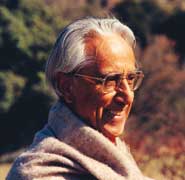




Dialogical or “imparative” philosophy
Dialogical or “imparative” philosophy attempts to be permanently open in its effort to constantly learn from others and from their different cultures, allowing one’s views to be fertilized by the views and visions of others. It deals with a system of thinking disposed to learning from any philosophical corner of the world whatever.
This imparative philosophy (from “imparare: in medieval Latin the attitude of learning, apprenticeship) is critical and conscious that “we can not escape the fact of taking a position no matter from where we philosophize and that such a limitation makes our philosophizing relative to similar undertakings looked at from different angles; thus it is very conscious of its contingency: “We are not the only source of (self) understanding”. It is constantly open to dialogical dialogue with other philosophical visions, and not merely to dialectical confrontation and rational dialogue; it does not attempt to conquer nor even to convince, but rather to look for the truth from different positions in order to continue arriving at a mutual understanding (“What is Comparative Philosophy Comparing?”, Interpreting Across Boundaries, New Essays in Comparative Philosophy, ed. G.J. Larson, Princeton University Press, 1988).
official site